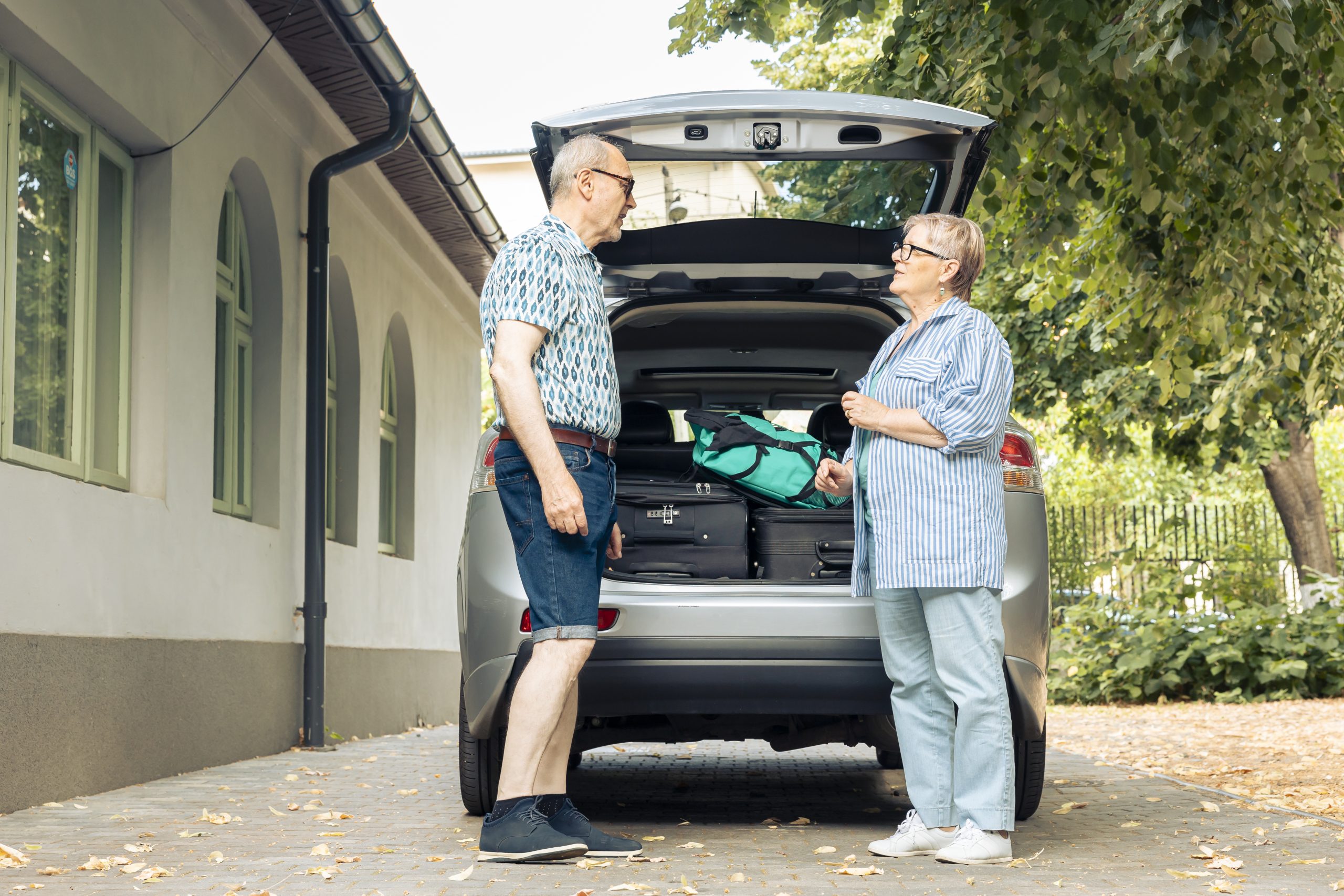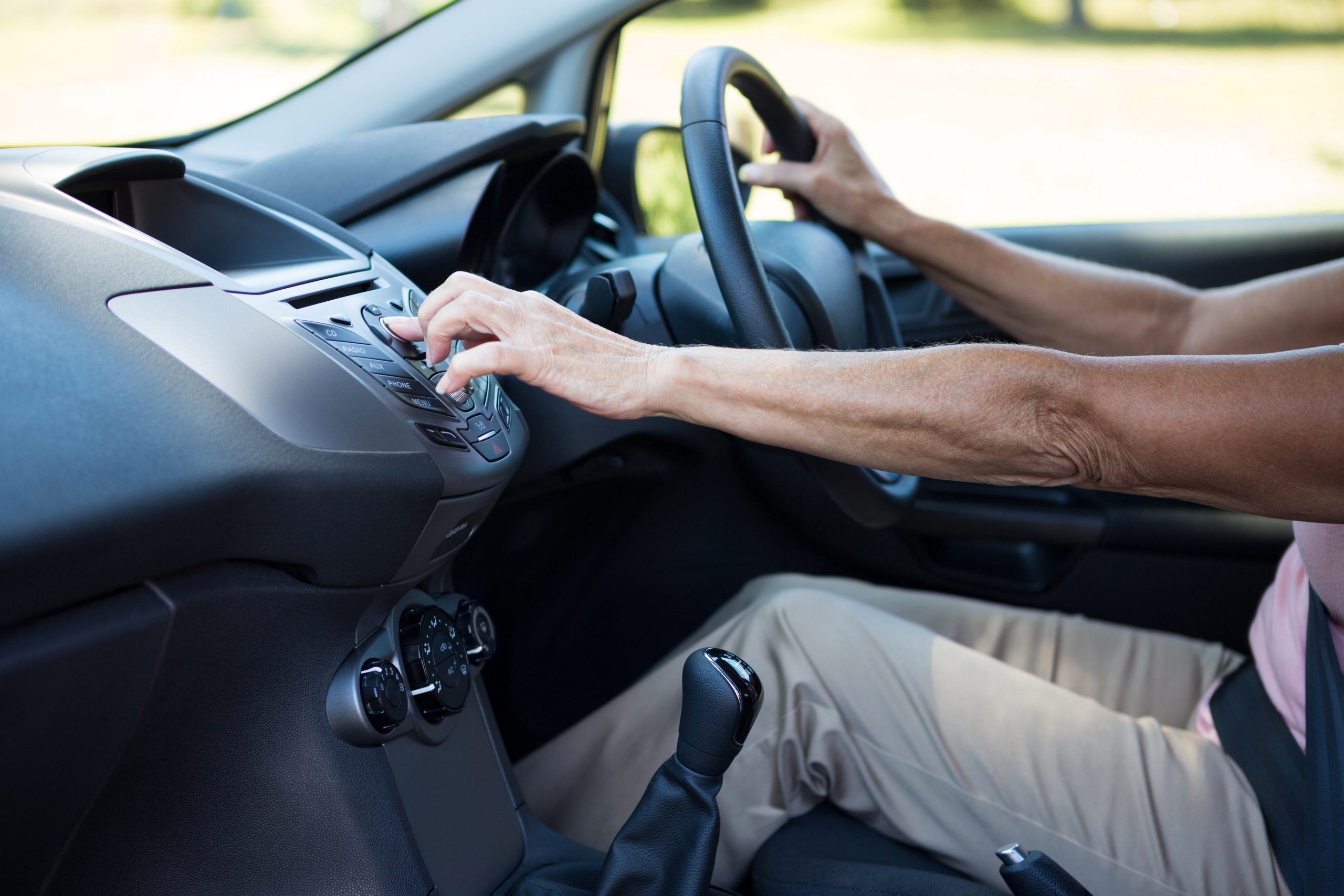Elderly Adults Balance Freedom and Safety on the Road

|
Getting your Trinity Audio player ready... |
Going to the supermarket, taking children to the mall, visiting the doctor, or driving around—calling a rideshare driver? Not at all. Driving represents independence for many elderly adults, who are often calmer and more prudent than many drivers. Advanced age is far from being a determining factor for someone to stop driving. Experts assure that what matters is the physical and psychological state.
Retiree Arzemiro Demo, 88, from Brazil, continues to drive. But only in his locality, a small town with just over 10,000 inhabitants. “I know my reflexes aren’t what they used to be, but I still feel confident driving. I prefer to stay on familiar roads where I feel secure and at ease”, he explains.
Safety First
Mr. Arzemiro has been renewing his driver’s license at the same place for 20 years. They already know him there and are also familiar with his health history. “During my last renewal, they checked my blood pressure and did vision tests with a new device I hadn’t seen before, which was quite interesting. But I passed all the tests with flying colors”, he reveals. Despite having managed to renew his license, the retiree is aware of his age and intends to drive only as long as he can maintain his own safety and that of other drivers. “I might not renew my license next time. If my health stays as good as it is now, I might give it another go. But if things change, it might be wiser to stop. It’s all about staying safe”, he assures.

Global data indicate that the world is amid a unique demographic transition, which is expected to increase the older adult population significantly. According to the World Health Organization (WHO), by 2030, 1 in 6 people will be 60 years or older. The share of the population aged 60 years and over will increase from 1 billion in 2020 to 1.4 billion. By 2050, the world’s population of people aged 60 years and older will double to 2.1 billion. Self-assessment is critical for everyone’s traffic safety; the family can also help. It is necessary to recognize when vision is no longer as good or when you are having difficulty keeping up with the hectic pace of traffic in some places.
This is the case of retiree Maria Salete Goulart, 68 years old, who decided to learn to drive at 43 and fondly remembers her time in driving school and taking tests. However, she chose not to renew her license this year. “I had my driver’s license for 15 wonderful years and enjoyed every moment, especially trips to the beach. As I started taking some medications, I noticed some changes and decided it was best not to renew my license. Luckily, I can still enjoy car rides with my husband, who drives. It’s a nice way to share the journey”, she says.
It’s the familiar saying: each case is unique. While some older adults don’t mind being without a license, it means a significant change in their social routine for others. Visits to friends’ houses and outings may depend on the availability of family members. Another issue is that without a car, the alternative is public transportation, which in many places is inadequate, especially for older people.

State public servant Francisco Melo has not reached 60 yet, but he already knows when to stop: when he turns 75. He, who is still 59, plans to stop because he knows the physical limitations he will have. “I plan to keep renewing my license and following the guidelines for now. When I turn 75, I might consider other options. With reliable public transportation, I’m confident I’ll stay mobile and independent. Embracing new ways of getting around can open up fresh opportunities and adventures. I believe that even without driving, I can maintain my freedom and continue to enjoy life to the fullest. It’s all about adapting and finding joy in the journey. Staying positive and flexible will help me make the most of every moment,” he reveals.
As elderly adult drivers continue to navigate the roads, they often face challenges that can lead to common traffic violations. These include disobeying stop signs and traffic lights, making prohibited left turns and U-turns, dangerous overtaking, and not driving on the right side of the road. These infractions highlight the importance of regular self-assessment and medical evaluations to ensure safety for all road users.
Older Adult Health
Health plays a crucial role in an elderly person’s ability to drive safely. Conditions like Parkinson’s and Alzheimer’s, as well as cataracts, hypertension, and diabetes, can impact driving. However, with proper medical care and regular check-ups, many older adults can continue to drive safely. “It’s important to recognize that with the right support and attention to health, older adults can maintain their independence and confidence on the road,” explains Brazilian traffic medicine specialist Dr. Maria Seleste Fernandes de Sá. Regular health assessments and open communication with healthcare providers can help older drivers stay informed and proactive about their driving abilities.
In Brazil, traffic doctors play a vital role in ensuring the safety of older adult drivers through the Physical and Mental Fitness Exam (EAFM). “It’s important to tailor these exams to each individual’s needs, recognizing that an 18-year-old’s exam will differ from that of a 50-year-old diabetic or an 80-year-old,” emphasizes Antonio Meira Júnior, president of the Brazilian Association of Traffic Medicine (Abramet). This personalized approach ensures that each driver receives the appropriate evaluation and support, helping them to continue driving safely for as long as possible. By focusing on individual health needs, we can better support older adults in maintaining their driving privileges and independence.
For elderly pedestrians, safety is paramount. The risk of accidents increases with age, so it’s important to stay vigilant. Walking in familiar areas, using canes if needed, being cautious on slippery surfaces, and always using pedestrian crosswalks can help ensure their safety. “Older adults bring a wealth of experience and wisdom to our communities, and it’s essential to support their mobility and safety,” says Dr. Fernandes de Sá. By creating a supportive environment and encouraging safe practices, we can help older adults continue to enjoy their independence and stay active members of society.

Legislation
Traffic laws vary from country to country, but the need for regular medical exams for older adult drivers is a common practice in many places. The decision on the maximum age to drive a car must be based on a medical examination. In some countries, the exam validity is renewed every five years until age 65; after 65, every three years. However, this can vary. Some regions, such as Brazil, are considering extending the renewal period for physical and mental fitness exams required for driver’s license renewal, according to the following situations:
- 10 years for drivers under 50 years old;
- 5 years for drivers aged 50 to 70;
- Three years for drivers aged 70 or older.
As the global population ages, the balance between maintaining independence and ensuring safety on the roads becomes increasingly essential. Older adult drivers can continue to enjoy the freedom of driving if they remain vigilant about their health and self-assessment. Families and communities play a crucial role in supporting elderly adults, ensuring they can access safe transportation options. By fostering a culture of safety and respect, we can help drivers stay on the road longer, contributing to their quality of life and independence.












